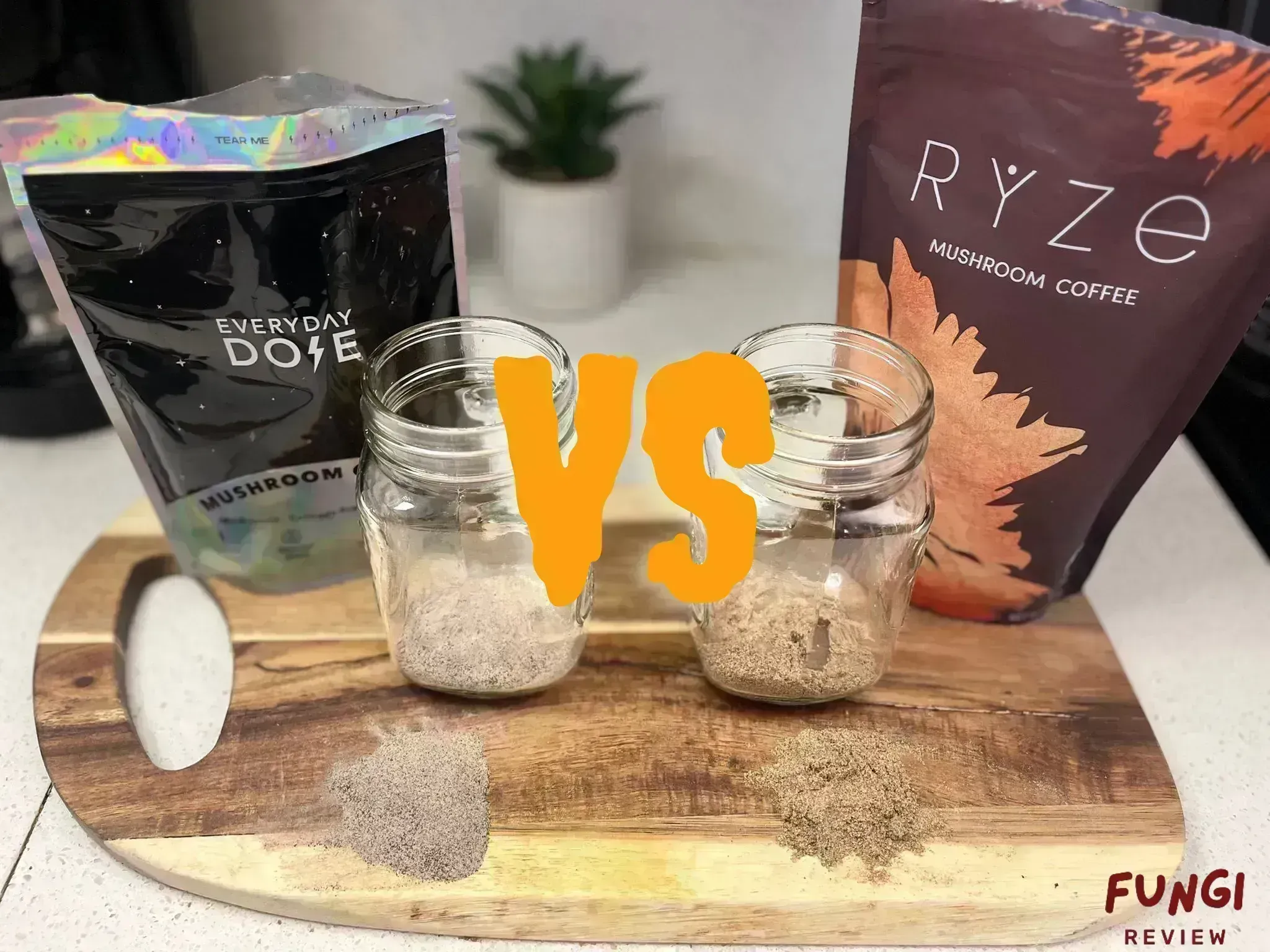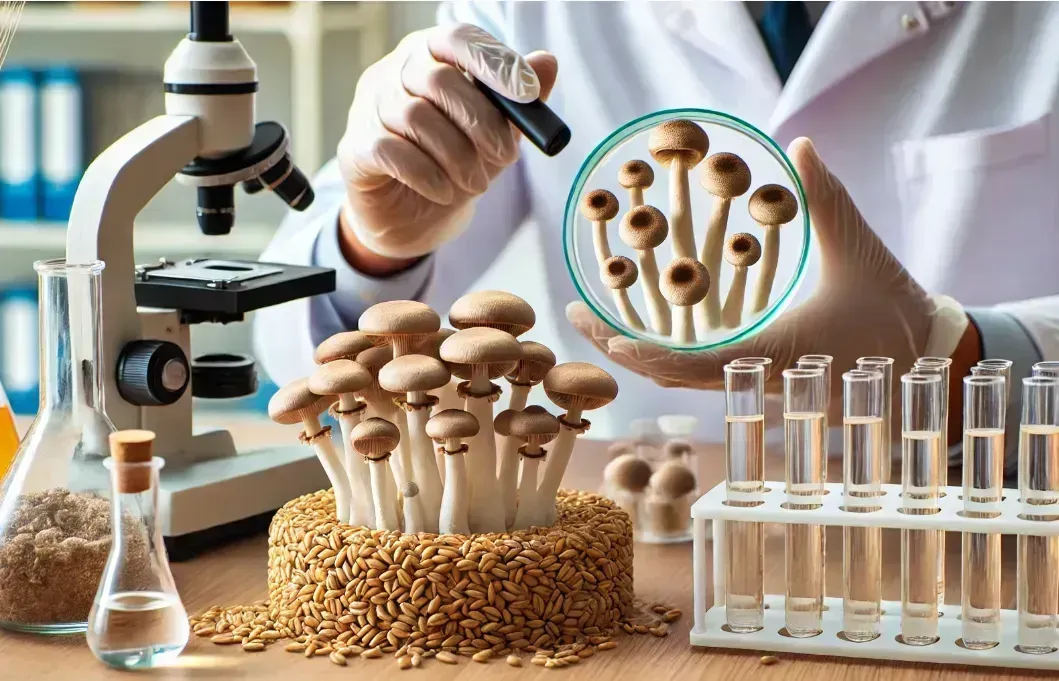Managing diabetes mellitus involves careful dietary choices to regulate blood sugar levels. Mushrooms, a versatile and nutrient-dense food, have recently garnered attention for their potential benefits in diabetic management. But are mushrooms truly good for diabetics? Let’s dive deep into the science behind mushrooms, their nutritional profile, and how they can contribute to a healthy lifestyle for diabetics.
Introduction
Mushrooms have been a part of traditional medicine for centuries, and recent research has shed light on their potential benefits for managing diabetes. With their unique combination of bioactive compounds, edible mushrooms have been shown to have anti-diabetic properties, making them a valuable addition to a diabetes diet. In this article, we will explore the science behind mushrooms and diabetes, discussing the mechanisms of action and the potential benefits of incorporating mushrooms into a diabetes management plan.
Nutritional Profile of Mushrooms
Mushrooms are among the healthiest foods you can add to your diet, especially if you’re managing diabetes. They’re low in calories, carbohydrates, and fat while being packed with essential nutrients that support overall health. Here’s a closer look at what mushrooms bring to the table:
-
Calories: Approximately 15 calories per cup (sliced raw mushrooms), making them perfect for calorie-conscious diets.
-
Carbohydrates: Less than 2 grams per cup, helping keep blood sugar levels stable.
-
Fiber: Plays a crucial role in digestion, slowing sugar absorption, and aiding blood sugar control.
-
Vitamins and Minerals: High in B vitamins (riboflavin, niacin, and pantothenic acid) and essential minerals such as selenium, copper, and potassium, which support energy metabolism and overall well-being.
-
Antioxidants: Contains unique compounds like ergothioneine and glutathione, known for combating oxidative stress and reducing inflammation, factors that are often heightened in diabetics.
These attributes make mushrooms a low-glycemic food, meaning they have minimal impact on blood sugar levels and are a fantastic choice for blood sugar management and managing diabetes effectively.
The Science Behind Mushrooms and Diabetes
Mushrooms are a rich source of bioactive compounds, including polysaccharides, fiber, ergosterols, flavonoids, lectins, terpenoids, and proteins. These compounds have been shown to have therapeutic activities, including antioxidant, anti-inflammatory, and anti-diabetic effects. The antidiabetic properties of mushrooms are attributed to their ability to regulate blood glucose levels, improve insulin sensitivity, and protect pancreatic beta cells.
How Mushrooms Benefit Diabetics
1. **Blood Sugar Levels Regulation**
Mushrooms are a natural source of bioactive compounds, including polysaccharides and beta-glucans, which can enhance insulin sensitivity. Research suggests that these compounds help stabilize glucose levels by reducing insulin resistance through the activation of glucose transporter 4 (GLUT4). For example, a study involving diabetic rats showed significant improvements in blood sugar levels after incorporating certain types of mushrooms into their diet.
2. Weight Management
Maintaining a healthy weight is critical for diabetes management, and mushrooms’ low-calorie and high-water content make them an excellent choice for weight loss or weight control. Their natural umami flavor can also serve as a healthier alternative to high-calorie flavoring agents, helping reduce overall calorie intake without compromising taste.
3. Gut Health and Diabetes
The health of the gut microbiome has a significant impact on glucose metabolism. Mushrooms like reishi, shiitake, and maitake contain prebiotic fibers that promote the growth of beneficial gut bacteria. A balanced gut microbiome can improve glucose regulation, reduce inflammation, and enhance overall metabolic health—all critical for managing diabetes.
4. **Immune System Support and Insulin Sensitivity**
Diabetes can weaken the immune system, increasing susceptibility to infections. Mushrooms’ beta-glucans are known for their immunomodulatory properties, which help strengthen the immune system by interacting with various immune cells. Additionally, their antioxidants reduce oxidative stress, further bolstering immunity and overall health.
5. Reduction in Inflammation
Chronic inflammation is a common issue for diabetics, contributing to complications like cardiovascular disease. Mushrooms’ anti-inflammatory compounds, such as ergothioneine, help counteract these effects, promoting better health outcomes.
Mechanisms of Action
1. Polysaccharide-Mediated Blood Glucose-Lowering Effect
Polysaccharides, particularly beta-glucans, are the primary bioactive compounds responsible for the anti-diabetic effects of mushrooms. These compounds have been shown to lower blood glucose levels by regulating glucose metabolism, improving insulin sensitivity, and reducing glucose absorption. The polysaccharide-mediated blood glucose-lowering effect is attributed to the ability of beta-glucans to stimulate the release of insulin and improve glucose uptake in skeletal muscle cells.
2. Pancreatic β Cell Activity Maintenance
Mushrooms have been shown to protect pancreatic beta cells from damage and improve their function, leading to increased insulin production and improved glucose metabolism. The bioactive compounds present in mushrooms, including polysaccharides and terpenoids, have been shown to have immunomodulatory effects, reducing inflammation and oxidative stress in pancreatic beta cells.
3. Glucose Absorption Inhibition
Mushrooms contain water-soluble dietary fiber, which slows down digestion and reduces the postprandial glucose spike. The fiber present in mushrooms, particularly beta-glucans, has been shown to inhibit glucose absorption in the gut, reducing the amount of glucose available for absorption into the bloodstream. This mechanism of action contributes to the anti-diabetic effects of mushrooms, making them a valuable addition to a diabetes diet.
By understanding the mechanisms of action of mushrooms and their bioactive compounds, we can appreciate the potential benefits of incorporating mushrooms into a diabetes management plan. With their unique combination of anti-diabetic properties, edible mushrooms offer a promising approach to managing blood sugar levels, improving insulin sensitivity, and protecting pancreatic beta cells.
Best Mushrooms for Diabetics
While all mushrooms offer health benefits, some varieties are particularly beneficial for diabetics due to their unique compounds and effects:
-
Reishi Mushrooms: Known for their adaptogenic properties, they may help lower blood sugar levels and improve stress management—important for controlling diabetes.
-
Lion’s Mane: This mushroom is renowned for its potential to support nerve regeneration, which can be helpful for diabetics experiencing neuropathy.
-
Maitake: Contains specific compounds like D-fraction that enhance insulin sensitivity and improve glucose regulation.
-
Shiitake: High in antioxidants and other nutrients that support cardiovascular and overall health, shiitake mushrooms are a delicious and functional addition to any meal.
-
Button Mushrooms: Readily available and versatile, these mushrooms are a low-calorie, nutrient-dense option for everyday meals.
-
Oyster Mushrooms: Rich in polysaccharides, vitamins, minerals, and dietary fibers, oyster mushrooms are beneficial for diabetes management. They help regulate blood sugar levels and can be incorporated into various culinary dishes, making them a versatile and healthy choice.
How to Include Mushrooms in a Diabetic Diet
Adding mushrooms to your diet is easy and can significantly enhance the flavor and nutritional value of your meals. Here are some practical tips:
-
Toss Them in Salads: Add raw or sautéed mushrooms to salads for extra texture and nutrients.
-
Boost Your Soups and Stews: Use mushrooms as a substitute for higher-calorie ingredients in hearty dishes. They add a meaty texture without the extra fat.
-
Try Mushroom Tea or Supplements: Functional mushrooms like reishi and lion’s mane are available in powdered or capsule forms for those looking to reap specific health benefits conveniently.
-
Savor Them in Stir-Fries: Pair mushrooms with other non-starchy vegetables, lean proteins, and diabetes-friendly sauces for a quick and nutritious meal.
-
Enhance Breakfast Dishes: Add mushrooms to omelets or frittatas for a filling and low-carb start to the day.
Precautions for Diabetics
While mushrooms are generally safe and beneficial, there are a few considerations for diabetics:
-
Monitor Blood Sugar Levels: Although mushrooms have a low glycemic index, it’s essential to track how your blood sugar responds when incorporating them into your diet.
-
Beware of Allergies: Though rare, some people may experience allergic reactions to mushrooms. Introduce them gradually if you’re trying them for the first time.
-
Opt for Fresh or Organic Mushrooms: Processed mushrooms often contain added salts, preservatives, or unhealthy fats, which can counteract their health benefits.
-
Consult Your Healthcare Provider: If you’re considering functional mushroom supplements, such as reishi or cordyceps, consult a doctor or dietitian to ensure they’re appropriate for your specific needs.
-
Considerations for Gestational Diabetes: During pregnancy, dietary choices are crucial. A diet rich in mushrooms and other nutritious foods may help reduce the risk of developing gestational diabetes, which affects a significant percentage of pregnancies globally. Such dietary strategies are important not only for maternal health but also for the well-being of the unborn child.
FAQs
1. Can mushrooms help lower blood sugar?
Yes, mushrooms contain bioactive compounds, including beta-glucans and polysaccharides, that can improve insulin sensitivity and stabilize blood sugar levels.
2. Are all mushrooms safe for diabetics?
Most fresh mushrooms are safe and beneficial for diabetics. However, processed mushrooms with added sugar, sodium, or unhealthy fats should be avoided.
3. Can diabetics take mushroom supplements?
Mushroom supplements, such as those containing reishi or lion’s mane, can provide additional benefits. However, it’s best to consult with a healthcare provider before use.
4. How often should diabetics eat mushrooms?
Mushrooms can be included in meals several times a week as part of a balanced diabetic diet. Aim for variety to maximize their health benefits.
5. Are functional mushrooms like reishi and maitake better than regular mushrooms for diabetes?
While regular mushrooms are excellent for general health, functional mushrooms like reishi and maitake offer targeted benefits, such as enhanced glucose regulation and immune support. Combining both can provide a well-rounded approach to diabetes management.
Final Thoughts: Are Mushrooms Good for Diabetics?
Mushrooms are a nutrient powerhouse and an excellent choice for individuals managing diabetes. Their low-calorie and low-carb profile, combined with their ability to regulate blood sugar, promote gut health, support weight management, and positively influence lipid metabolism, makes them an invaluable addition to a diabetic-friendly diet. However, as with any dietary change, it’s essential to consult with your healthcare provider or a dietitian to ensure the best results for your unique health circumstances.
By incorporating mushrooms into your meals, you can enjoy their rich flavors and health benefits while actively supporting your diabetes management plan. Whether in soups, salads, or supplements, mushrooms offer a delicious and functional way to improve your overall health.





